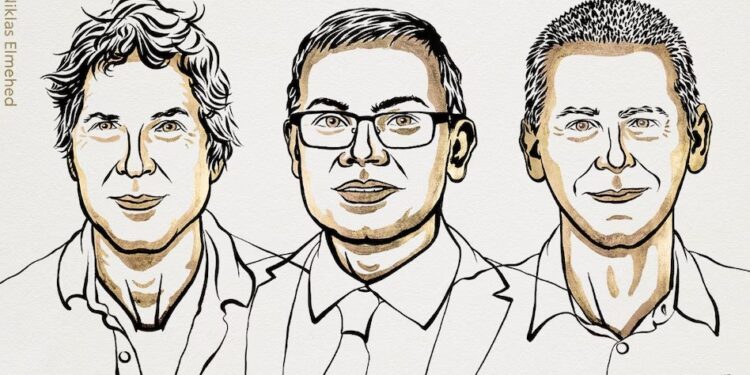The Nobel Prize in Chemistry 2024 was divided, one half awarded to David Baker “for computational protein design”, and the other half jointly to Demis Hassabis and John M. Jumper “for protein structure prediction”
David Baker, Demis Hassabis and John Jumper received this year’s Nobel Prize in Chemistry. The researchers are praised for discoveries about how proteins are constructed.
This year’s award winners have contributed in various ways to cracking the code for protein structures. David Baker receives the award for computer-based protein design, while the duo Demis Hassabis and John Jumper are awarded for using an AI model to solve the problem of understanding the complex structures of proteins.
“This year’s one discovery is about building your own spectacular proteins. The other about achieving a 50-year-old dream: to be able to predict the structure of proteins based on their amino acid sequences,” says Heiner Linke, chairman of the Nobel Committee for Chemistry in a press release.
Proteins are the building blocks of life. They consist of up to 20 amino acids that are constructed according to advanced building instructions in three dimensions.
Design new proteins
In the early 2000s, David Baker figured out how to design completely new proteins that could be used for, among other things, drug production.
AI pioneers Demis Hassabis and John Jumper at Google DeepMind in London have developed the AI program, AlphaFold2, which correctly succeeded in predicting the structure of all the 200 million proteins known to scientists today.
It paves the way for being able to predict in a much simpler way how proteins look in three dimensions.
- It’s like we get glasses and all of a sudden we can see how they work together and it gives us an opportunity to understand what the cell’s life is, says Ylva Engström, member of the Swedish Academy of Sciences and professor of molecular biology at Stockholm University.
Started with computer games
Demis Hassabis founded the computer company DeepMind in 2010 and initially developed AI models for popular computer games. A few years later, he became world famous for creating an AI that beat the world champion in the ancient Asian board game go. Then the next challenge loomed – to create an AI that can predict how proteins fold – which has now been awarded this year’s Nobel Prize in Chemistry.
- The Nobel Prize has previously gone to people who are in business, it is not new in any way. We reward the most outstanding discoveries. In this case, Google DeepMind has been completely open and transparent, says Ylva Engström.
- It was a surprise. I had definitely heard that we were tipped, but it was still a surprise, says David Baker on the phone during the Royal Academy of Sciences’ press conference.
- Source: svt



Recent Comments